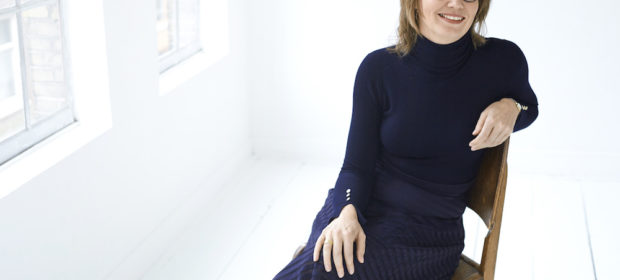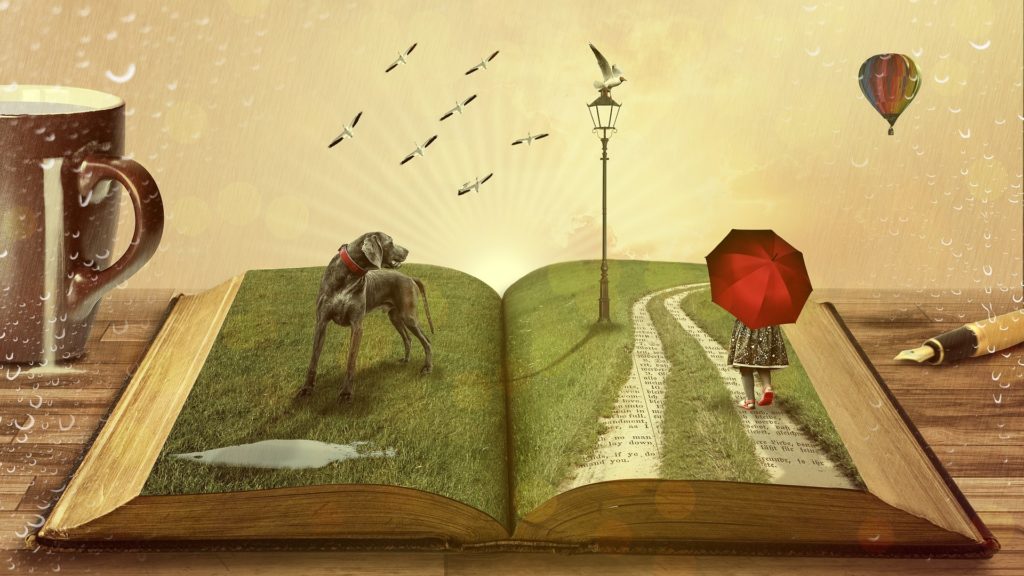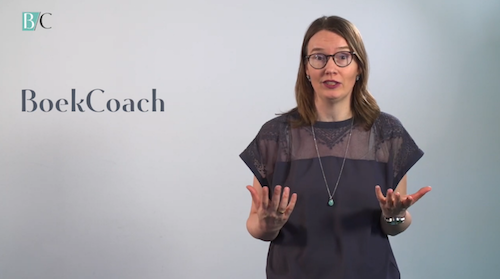Wat doet BoekCoach?
Posted by boekcoach in Boekenbusiness, Schrijftips | 0 comments

BoekCoach staat aan zijlijn. BoekCoach houdt je hand vast als je het zelf even niet meer weet. BoekCoach geeft tips en adviezen. BoekCoach leert je hoe het boekenvak werkt en hoe je je weg kan vinden. BoekCoach brengt je in contact met professionals in het vak die je verder kunnen helpen. BoekCoach bevraagt je en helpt je tot de kern van je boek te komen. BoekCoach zoekt met jou naar een vorm van uitgeven die bij jouw authentieke zelf past. Dit kan dus ook het opzetten van een eigen uitgeverij betekenen. BoekCoach denkt met je mee en versimpelt de uitgeefdilemma’s. Je doet het dus zelf, al dan niet met behulp van professionals.
The power of niksen and lantefanteren
Posted by boekcoach in Boekenbusiness, Boekinfo, Inspiratie, Schrijftips | 0 comments

This morning I did nothing. Or I nikste or was busy aan het niksen. The productivity gurus, except David Allen, would probably call it procrastinating because there is also a shitload of work I still need to do. Except I did it consciously. Why? Because I strongly believe in the power of niksen. It makes me more productive, creative, smarter and even happier in the end. I really had to laugh this week because suddenly niksen, according to Lifehacker.com, was the Dutch concept to become happier and live a happy life. Well there is another Dutch word which I think would contribute even more to that and that is called lantefanteren. Basically niksen, but with a small more positive difference you can just do as you please and there is no aim in whatever you do. You can stare out the window, take a long bath, whatever you like. Basically, you let your mind, body and soul wanders in any way that pleases you. So why should you incorporate niksen or lantefanteren in your writing or work routine? Here are 5 reasons! Reason 1: For the fun of it! Yes, just do it for the fun of it! Why should you always be busy? Why should you always “do” something to enjoy yourself? Why should you always create the right environment or sit in a certain position to create peace and calm? Just be in the moment and do nothing J. What more of a reason do you need? Reason 2: It makes you more creative To have time to wander makes me 100 times more creative. Because like taking a shower the moment you let your mind wander and there is no pressure to do or create something, the best ideas pop up. This works brilliantly with writers’ block as well. Take the pressure of your mind and let it wander. And if nothing comes out of it that is ok too, because the purpose was doing nothing at all J. Reason 3: You connect the dots and it makes you smarter By taking pressure of your mind by doing nothing and allowing yourself to do nothing it’s like removing the traffic jam out of your head. Suddenly all the roads are clear. Cars can go where they need to be. This makes your brain go Yi Ha! Suddenly new roads are built, connections are made, solutions pop up and information is stored better. So yes, it makes you smarter and makes new connections. Who would have guessed by doing nothing you become smarter J? Reason 4: It makes you more productive (yes, yes I know it sounds strange) Doing nothing makes you more productive. The main reason is that you give your brain a rest and makes it possible to replenish all the willpower and decision-making energy you depleted by just going on and on and on. Also, it just gives your brain and body a rest so the next time you use your brain and body they are more rested, making you more powerful and energised to do the things you need to do. Basically, you beat fatigue by letting your mind, body and soul wander. Reason 5: It makes you happier So, if the above 4 reasons do not make you a tiny bit happier and convince you to schedule to do nothing once in a while, how about it just makes you happier? To give yourself permission to do nothing, to take all pressure off, to do small things you enjoy just for the heck of it, gives you a deep feeling of relaxation. And when you are one of those people who needs to be busy all the time, the doing nothing might be agony. When you can get back to work you are so, so happy. So, the result in the end is the same. Although in my humble opinion it’s better to enjoy the doing nothing time… Lantefanteren and niksen You read the above and you are ready to do nothing. Only you have worked always so hard, always kept the pressure on or your niksen was always a form of procrastinating and you literally do not know what to do now???? I recommend the following: schedule 2 to 3 hours of niksen-time. Make sure you can be either alone and won’t be disturbed or be somewhere with so many people it will have the same effect (like a nice coffee place). The best place is your home or. When you start and it’s your first time, set an alarm so you do not have to worry about time. When you are more experienced you can let the timelimit go because every time is different. Listen to your mind and body when it tells you enough is enough. And then 1, 2, 3 ready steady go…. Yes just do nothing ….. Enjoy! Niksen: to idle or to muck or literally: doing nothing Lantefanteren: no translation found...: doing small enjoyable things without purpose or planning

I am the hurricane. Calm the mind, be creative in 3 simple steps
Posted by boekcoach in Inspiratie, Schrijftips | 0 comments

A theme of the past weeks has been a lot of people who are stressed out, anxious, on the verge of being burned out or going through life changing events. I think it’s in the air. What I want to share with you is a technique I use when I’m under a lot of pressure or stressed out and nothing seems to help. I came up with it when I was at a point in my life where I hardly could cope with everything. And the suggestions that I had to control my breath, have a mind with empty thoughts when I meditated, stressed me out even more. Now I use the hurricane-technique for everything. It’s a great technique when you’re stuck in a creative process, want to write and cannot write or there are just too many damn options to choose from. And the best thing is, you can do this anywhere, anytime and for as long as you want. The most effective way for me: In bed, right before I sleep. Or in a chair right before a demanding or creative task or first thing in the morning when I wake up anxious. No pressure. No demands. Easy and let go.
Step 1: Be the tornado or hurricane whichever you prefer :)
Imagine yourself as a hurricane. A huge swirling wind with a calm eye in its centre. The outside layer of the wind is everything that happens outside of you. All the pressures, demands, emails, other people, anything you can think of. The inside layer of the wind are your thoughts, your emotions, your ideas, your feelings. Because you are the hurricane all these elements are mixed and form a real storm. Let the storm blow. Feel the destruction. Feel it’s power. Feel how fast it swirls around you. Just let it be. It’s ok that it’s there. Just let it swirl. If you do this more often you will start to notice the intensity of the hurricane and the thickness of the layer of wind will differ depending on how you feel.Step 2: The eye
Imagine yourself as the eye of the hurricane. You are the eye. Your emotions, your thoughts everything else are the wind. They are swirling around you. Let them swirl. They are not you. You do not have to control them. You do not have to slow them down. Just accept that they are there. They do not define you. They are not you. You are the eye. Just observe. Sit as long as you want. 30 seconds or 5 minutes or even half an hour. No pressure. If you do this more often, you’ll notice that the size of the eye will vary in size depending on how you feel. When I started this exercise, the wind was literally in face. Now I have kilometres of space around me. Just let it swirl. Everything is ok.Option a: The eye advanced ;)
You can, if you feel comfortable, start to play with the wind. Let it grow, let it go up and down, let the speed vary, calm it down, speed it up. Put some colours in it. Just have fun and play.Option b: The eye advanced ;)
You can also let the wind be and focus on the eye. Make it feel peaceful. Imagine sounds, colours, images. Everything is ok as long it’s peaceful for you. It’s your happy place. My happy place is sparse. Just blue sky, sunshine and some green grass, water and mountains.Step 3. Ready
When you are done you are done. This can be after 30 seconds, after half an hour or even after an hour. When you are done sit for two more minutes without looking on your phone or talking to someone. And that’s it. You are now ready to tackle the world or write your masterpiece or go to sleep.You are the hurricane
The more often you practice this, you will start to notice your breathing will become calmer, you will be more at peace and will move more inward. But the great thing is. You do not have to. Easy. No pressure. Just let it swirl around you. You are the hurricane.Een boek schrijven? Waar begin je aan? Ontdek het!
Posted by boekcoach in Boekenbusiness, Schrijftips | 0 comments

Veel mensen dromen ervan om een boek te schrijven. Maar weet je wel waar je aan begint? De gratis online training ‘een uitgever zoeken of zelf uitgeven’ helpt je om écht van start te gaan met jouw beste boek. En nu heb je nog een reden om hem te volgen, want onder de deelnemers van de training in november verloot ik een gratis Skypesessie! Klik hier om direct naar de gratis onlinetraining te gaan.
1 miljoen potentiële schrijvers
Wist je dat 1 miljoen Nederlanders een onaf manuscript in hun nachtkastje hebben liggen? Een boek schrijven spreekt tot de verbeelding en een boek op je naam hebben staan lijkt iets om naar te streven. Maar potentiële schrijvers van Nederland, waarom zou je dat eigenlijk willen?Suzanne Jansen wilde nooit meer een boek schrijven
Het kost namelijk enorm veel tijd en energie om een boek te schrijven. Iemand als Suzanne Jansen bezwoer zichzelf na het schrijven van Het Pauperparadijs om nooit meer een boek te maken. Ze vond het een eenzaam proces en ze voelde zich tijdens het schrijven enorm verloren in het zoeken naar wat het verhaal nou moest zijn (Inmiddels heeft ze met haar tweede boek Ondanks de Zwaartekracht toch laten zien dat het bloed kroop waar het niet gaan kon).Schrijven is één ding, (laten) uitgeven een tweede
Als je besluit om een boek te gaan schrijven is het belangrijk om te bedenken waar dat boek over gaat en vooral: waarom het er moet komen. Die ‘waarom’-vraag is extreem belangrijk, want hij hangt samen met de keuzes die je later – als je een duimendik manuscript hebt liggen – zal moeten maken. Eén van de belangrijkste keuzes is: geef ik mijn boek zelf uit of laat ik het uitgevenGa goed voorbereid van start en schrijf je beste boek
Heb je besloten om ervoor te gaan? Ga dan goed voorbereid aan de slag. Zodat jij echt stappen kunt maken in dit spannende proces. Het uitgangspunt van de gratis onlinetraining is of je een uitgever wilt zoeken of je boek zelf wilt uitgeven. Er zijn nog veel meer keuzes die je moet maken als je een boek wilt uitbrengen, maar dit is een hele belangrijke. Want hierdoor bepaal je voor een groot deel hoe jouw boekschrijfproces eruit komt te zien. En of deze aanpak bij jou als auteur past. Volg de gratis training en maak kans op een Skypesessie met Boekcoach
Dus volg deze gratis training, bestaande uit 8 korte video’s en af en toe een opdracht. Onder alle deelnemers in november verloot ik in de maand erop een gratis Skypesessie van een half uur (t.w.v. 75 euro) waarin ik je nog meer ga helpen om jouw beste boek te schrijven!
Volg de gratis training en maak kans op een Skypesessie met Boekcoach
Dus volg deze gratis training, bestaande uit 8 korte video’s en af en toe een opdracht. Onder alle deelnemers in november verloot ik in de maand erop een gratis Skypesessie van een half uur (t.w.v. 75 euro) waarin ik je nog meer ga helpen om jouw beste boek te schrijven!Van Irving naar Koch: hoe schrijf je een boek?
Posted by boekcoach in Inspiratie, Schrijftips | 0 comments

Loop je met een steengoed verhaal rond? Tijd om dat op te gaan schrijven! Maar ja, hoe pak je dat aan? Als je het simpel wil stellen zijn er twee manieren om met je boek te beginnen. Met de ene aanpak denk je je boek van tevoren helemaal uit. De Amerikaanse auteur John Irving doet dat bijvoorbeeld. Hij begint bij het einde, en schrijft van daaruit zijn boek. Met de andere aanpak ga je meer te werk als Herman Koch. Die weet vaak zelf nog niet hoe een boek zich gaat ontwikkelen. Koch weet bij wijze van spreken net zo snel als de lezer of zijn hoofdpersonage een moord heeft begaan.
Welke aanpak voor het schrijven van een boek past bij jou?
Kortom: er is niet één juiste manier van een boek schrijven. Dat betekent gelukkig dus ook dat jouw aanpak net zo goed is als die van een ander. Er zijn allerlei cursussen, adviseurs en redacteurs die jou hun eigen methode aanraden. Maar uiteindelijk gaat het erom, dat je een manier vindt die bij jouw manier van werken past en waar jij je goed bij voelt.
Tip: start met het framework van je boek
Ben je nog niet zo’n ervaren auteur? Dan kan het handig zijn om te beginnen met het framework van je boek. In feite pak je het proces dan net zo aan zoals John Irving dat doet. Voordat je begint denk je je hele boek uit. Dus je schrijft alvast inhoudsopgave en bedenkt alvast heel concreet wat er aan het begin, midden en einde gebeurt. Het grote voordeel van zo’n framework is dat je minder snel de weg kwijtraakt in je eigen verhaal. Meestal willen auteurs in hun eerste boek(en) veel te veel beschrijven, en dwalen ze daarmee af van het onderwerp. Terwijl less vaak more is.
En dan: loslaten!
Maar met alleen een framework ben je er niet. Want wat je vervolgens wel weer moet doen is datzelfde framework durven loslaten tijdens het schrijven. Veel boeken hebben namelijk een eigen flow en beginnen op een gegeven moment als het ware zichzelf te schrijven. En dat is helemaal het geval als je boek jouw persoonlijke verhaal vertelt, of in de vorm van een roman geschreven wordt. Maar de combinatie van én goed voorbereid zijn, én durven loslaten en daarmee te vertrouwen op het schrijfproces levert vaak de mooiste boeken op!
Stel je maar eens voor dat je een presentatie moet houden voor een groot publiek. Je hebt een mooie PowerPointpresentatie gemaakt, en van tevoren heb je goed geoefend wat je wilt zeggen. En dan, op het moment suprême gooi je je tekst weg en vertel je gewoon je verhaal. Waarmee je je publiek écht weet te raken, omdat het authentiek is, en geen ingestudeerd verhaal.
Boekcoach Tip:
Bedenk - voor je van start gaat met het daadwerkelijke schrijven - wat het framework van jouw boek is.
Wil je nu echt gaan beginnen met jouw geniale boekidee? Volg dan mijn gratis online training 'Je hebt een Geniaal Boekidee. En dan?'En wat is jouw manier van schrijven? Ben jij meer een John Irving of een Herman Koch in je schrijfaanpak?
